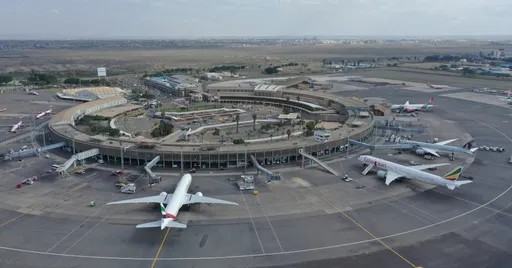By Coletta Wanjohi
TRT Afrika, Nairobi
The first African Climate Summit ended on Wednesday with a call by African leaders for world leaders to rally behind reducing emissions and an introduction of global carbon tax on fossil fuels, aviation and maritime transport.
The Nairobi declaration, as the resolutions of the summit are called, asked world’s biggest emitters of greenhouse gases to honour their commitment to provide $100 billion in annual climate finance. The commitment was made 14 years ago by developed nations at the Copenhagen conference.
“We urge world leaders to rally behind the proposal for a global carbon taxation regime including a carbon tax on fossil fuel trade, maritime transport and aviation,” the declaration read out by President William Ruto said.
Debt relief
The summit has asked developed nations to commit to a fair and accelerated process of phasing down coal and abolishment of all fossil fuel subsidies.
Africa is demanding for new debt relief interventions with a call for reform of the multilateral financial system and global financial architecture.
The summit has asked for extension of sovereign debt tenor and a 10-year grace period be introduced to debt repayment.
African heads of state have also proposed that a new financing architecture that is responsive to Africa’s needs be established “including debt restructuring and relief, including the development of a new Global Climate Finance Charter through UN general assembly COP processes by 2025” the declaration adds
What do the people want?
As the heads of state were reading their declaration in Nairobi, a group of citizens were meeting at one of the informal settlements in the city called Mathare.
“They are speaking for us yet they do not know what we need,” said Humphrey Humphrey Omukutu who heads a group of urban farmers in informal settlements who call themselves “ghetto farmers”.
Together with residents from other informal settlements in the city they met to encourage themselves for the work they do.
“The real voice of the Kenyans is here, and in other parts of the continent, it is in other informal settlements like ours, " he said.
He mobilised a group of young people to plant trees along the Nairobi River, one of the most heavily polluted in the country.
“The people understand solutions to climate change because we live with impacts of climate change daily,” he said.
“At the summit we hear they use jargons like carbon trading, and yet in essence if we want to clean our air, it is simple, we should just plant trees. So why can’t they make decisions that empower communities like ours to plant more trees?”
Humpyer and other environment activists in the informal settlement say for the Nairobi declaration to make a difference, implementation must include people at the grassroots who are directly involved in projects that are making a change.


















.JPG?width=512&format=webp&quality=80)




